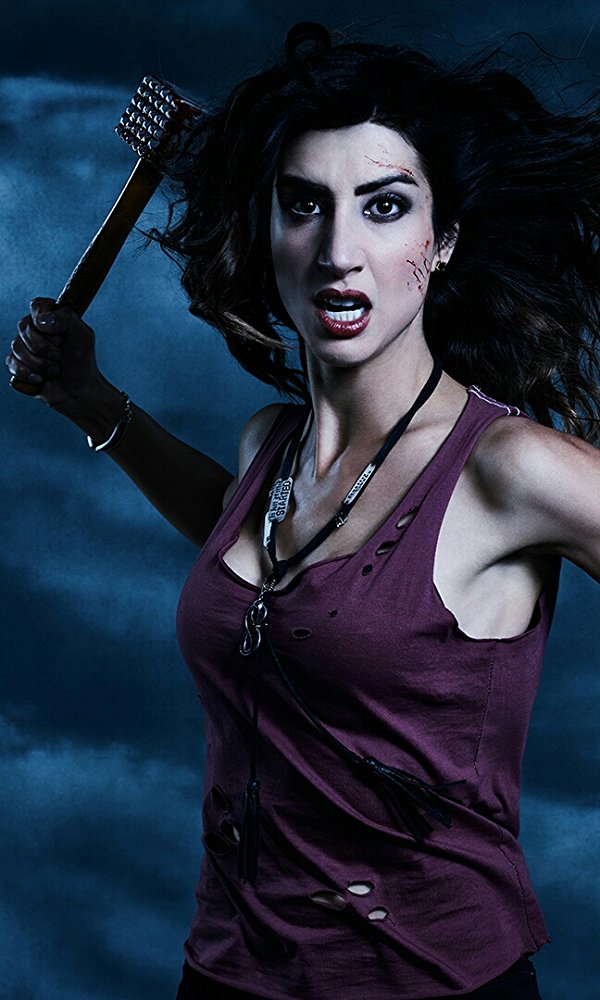

We fell in love with Ash Williams as easily-impressionable preteens, marveling in his brazen foot-in-mouth false bravado, but had his recent sidekick Kelly Maxwell been with him 30 years ago, we’re sorry to say that the chainsaw-wielding anti-hero would have been an afterthought. Portrayed by Dana DeLorenzo in the Starz series “Ash vs Evil Dead,” currently in its third season, Kelly is, as she would say, a breath of mother f@#?ing fresh @ss air!
In reality, DeLorenzo is also one of those freshly inhaled breaths. Eager to discuss her place in the Evil Dead universe and genuinely grateful to have been invited on board, the Ohio native is ecstatic to see her character take more of a leadership role this season, which she says will culminate in a moment that has Kelly seizing upon an opportunity in a extremely unforgettable way.
We recently sat down with DeLorenzo during a bomb cyclone (yes, that’s a thing!) to discuss where the series has impacted her life the most, the star dust that follows Sam Raimi when he leaves a room, and her mother’s spot-on chainsaw impression.
TrunkSpace: How has “Ash vs Evil Dead” impacted your life the most?
DeLorenzo: Oh man, that’s such a hard question to answer because, first of all, brevity is not my strong suit. I’m trying to answer questions in a short amount of time. It’s tough, and something that big and magnified is… something that huge of a topic is still hard for me to articulate. Let me try.
Well for one thing, it gave me a steady job in the entertainment industry, which has been something I have been dreaming and making birthday wishes for my entire life, and just busting my ass, really. I’m from Youngstown, not really the hotbed of entertainment. I’ve just always loved to perform. It was very innate. I was telling jokes to myself on my Fisher-Price tape recorder when I was three, cracking myself up with my “Sesame Street” stuffed animals. It was one of those things that always drove me. And my parents have always kept me very grounded, and are two of the hardest working people I know. So in that sense, I never really thought that it would ever be something I could do for a living, I just always wanted to pursue it on the side. I was working five or six shifts a week, 12 hour shifts on my feet, when I got this audition, in fact. The bar that I was working at was incredible and kept me afloat all those years in LA, for like five years. It was called Beer Belly. The fact that I get to wake up every day and do what I love, I’d say that is the biggest thing. And then there are all the little branches. I mean, what a thrill as an actor to be on a show like this, that has all the things. I get to flex so many muscles. I get to learn so many incredible aspects of the craft, whether it’s doing stunts in action, or doing comedy, which is my number one love, opposite Bruce Campbell, the king of one-liners and comedic timing. Or, I’m there walking in the woods with Xena: Warrior Princess. And also, I get to do drama, and obviously, the horror. I have gotten to cross off so many things on my acting bucket list.
TrunkSpace: Well, and from an outside perspective, that seems like one of the amazing things about being involved in a show like this, is that, anything is possible. You could show up to work and be doing anything on any given day.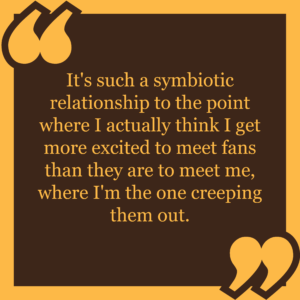
DeLorenzo: And that’s really how it is. We move very quickly. So many of the days, things get switched around, and all of a sudden, I’m hanging upside down by my ankles in a tree fight, and then the next day I’m getting covered in blood and viscera with a cannon being shot at me. It definitely keeps it exciting and keeps you on your toes. And that lends itself to the final aspect which is, having fans is obviously something new for me. I’m just so grateful because, this is so sincere, meeting fans gives me life. It’s such a symbiotic relationship to the point where I actually think I get more excited to meet fans than they are to meet me, where I’m the one creeping them out. I’m so intense all the time and I’m so passionate. I mean, I am Italian, that comes with the territory. Truly, when I get to do these conventions or comic cons and meet them, they’re the ones usually backing away from me slowly, asking for security. I just get so filled with love and passion, and as an actor that’s such a great feeling, ’cause the work is the reward, to be honest, for me. I go crazy when there’s nothing going on and I’m not shooting. Right now, usually we’re shooting in New Zealand at this time, and so, I’m having a little bit of a panic attack not being on set. But luckily, I can go to some of these conventions to meet fans and it’s like, how great to have people, first-hand, in your face, and be able to respond to your work and get as excited as you were to shoot it. That, to me, has been the crème de la crème. Like I said, considering my roots and considering the journey and the real tough road it took to get here, there’s not a day that goes by that I am not grateful and feel so lucky to be on the show about a guy with a chainsaw arm. Who knew?
TrunkSpace: As it relates to the fans, this franchise, more than a lot of the genre franchises, it feels like people have a sense of ownership in it. It’s almost like they found their indie band that they loved and they want to share it with their close friends. How long did it take for you, being a part of it, to feel that ownership as well?
DeLorenzo: You know, I don’t know that I feel ownership in this, I just feel like I’m a cog in the wheel. But in terms of when did I feel like people were receptive, to welcome us as part of the group… pretty early on.
It’s interesting you say that because I was actually terrified at the possibility that it could go in a very different direction. And that’s not a secret, if you look at the early responses, when it came out that finally, after, what was it, 20 or 30 years, they were gonna have a follow-up to “The Evil Dead” with Bruce Campbell, the response was a little bit, what’s the word I’m looking for?
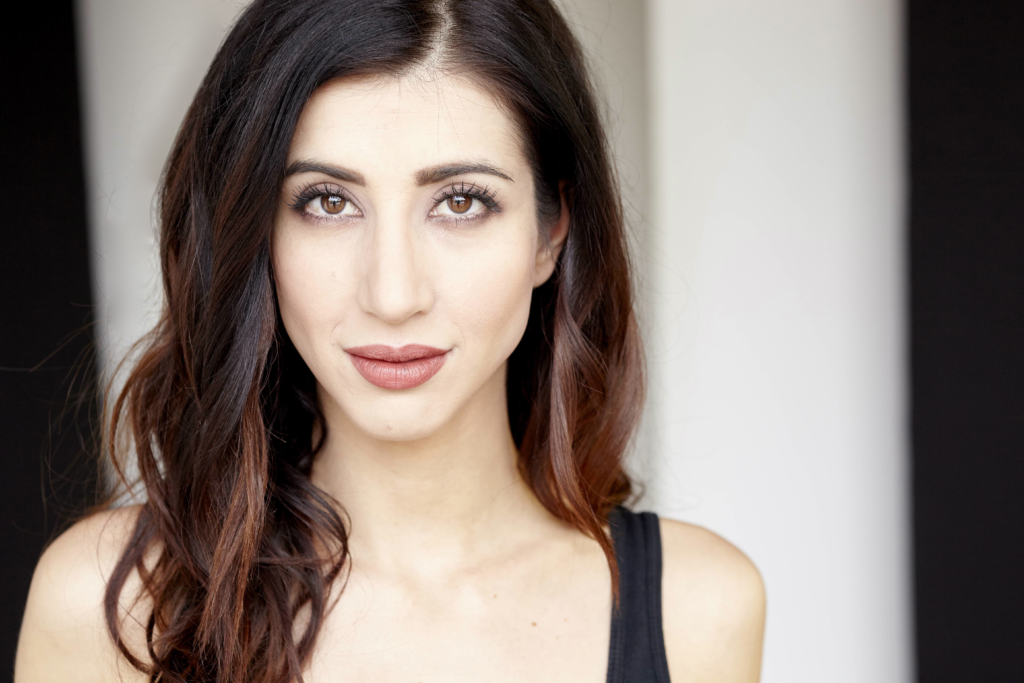
TrunkSpace: Cautionary.
DeLorenzo: That’s exactly the word, cautionary, or even adversarial. And understandably so. I knew the franchise, I was a fan. It’s about one guy, and finally, finally, here we got ’em again, Bruce Campbell, doing this next leg, transitioning from film to television, and what, he’s gonna have two sidekicks? So I was a little worried that, “Oh boy, what if they hate us?” Luckily, I’d say, straight away, from the very first time I got to meet fans… I think it was New York Comic Con before the show had aired, so we did a huge thing there for like 2500 fans… and they just went nuts. Then, I think my first convention was in Chicago, my home away from home… I’ve lived there for 10 years… and it was Days of the Dead, and only three episodes had aired of the first season and already I was blown away by how receptive they were and how immediately they invested in Pablo and Kelly. And I have to give credit to Rob Tapert and Bruce and Sam (Raimi), and our showrunner at the time, Craig DiGregorio, because they knew what they were doing. They knew that in order to let this character, Ash Williams, this flawed human being that we know and love, they knew that in order to let him still be that character with some often offensive, sometimes ignorant comments and views, they knew that in order to let him still be him, they needed to surround him with someone who has a heart and who was his cheerleader, and also someone who is willing to go toe-to-toe with him and call him out and also sort of be the common sense.
TrunkSpace: It’s a new layer that didn’t exist before, this wonderful family element that binds them all together.
DeLorenzo: Absolutely. You hit the word, which is the buzzword for Season 3, because for two seasons we built up this family and even have introduced, or brought back members of Ash’s family. His father, played by the great Lee Majors, which I think is one of the best additions to the show. And then, of course, we have Cheryl, his sister, which, oh my goodness, what a thrill for the fans, the lifelong fans of the franchise, to have that. But now, for Season 3, we introduced a daughter, his actual daughter he never knew he had. So there is so much great richness and conflict that now directly affect Pablo and Kelly, who the audience has grown to love, and you see how that sets that in motion. Now it’s the family that is bound by blood, and the family that is bound by bloodshed, and I love that. I love watching Ash Williams, the last man on earth who should be, now have to be responsible for a teenage daughter, no less, who already has the rebellion that a lot of teenagers have, but then with the same stubbornness of Ash Williams. It gives a whole new meaning to sins of the father. It is heartwarming but also so funny, and often very real and emotional, and I’m very excited for fans to see how Ash grows just enough this season in such a real and fantastic way.
TrunkSpace: From what we could tell, this is the longest time you’ve ever spent with one character. What has that journey been like for you to discover somebody over an extended period of time?
DeLorenzo: It has been one of the greatest thrills of my life because I absolutely love my character. I love Kelly Maxwell, and that, again, is a testament to the writers and to the showrunners, but also, Sam Raimi set the bar from day one, about collaborating and letting me bring my own aspects or thoughts or different layers that I wanted to bring to the table. From day one, they have been so receptive and collaborative, and I think that always lends itself to being… when creatives all work together for the same goal, it takes a village to create a strong character. I’m talking down the line, not just collaborating in terms of dialogue and in terms of ideas and who Kelly Maxwell is, it’s been collaborative from behind the scenes.
So, it has been such a magnificent experience, and I feel like art imitates life imitates art, because Kelly’s journey has been very similar to my own journey playing Kelly. That sounds so meta, but it’s true. (Laughter) She was thrown into the fight against evil, I was thrown into this. Yes, I’d been working for a long time, but I think I had no more than eight seconds of screen time on any major movie or TV show. Also, just how she came into her own, how she became her own warrior by her own right, I feel like I can look back at where I started and I feel a lot more comfortable in these shoes now… and in this purple leather jacket.
I have nothing else to compare it to, so maybe we should add this to the other ways that this show has impacted me, because I’ve never gotten to create a character and never before have been able to have so much creative input in a character. That’s been a huge thing for me, and again, something that I’m just so happy and grateful for.
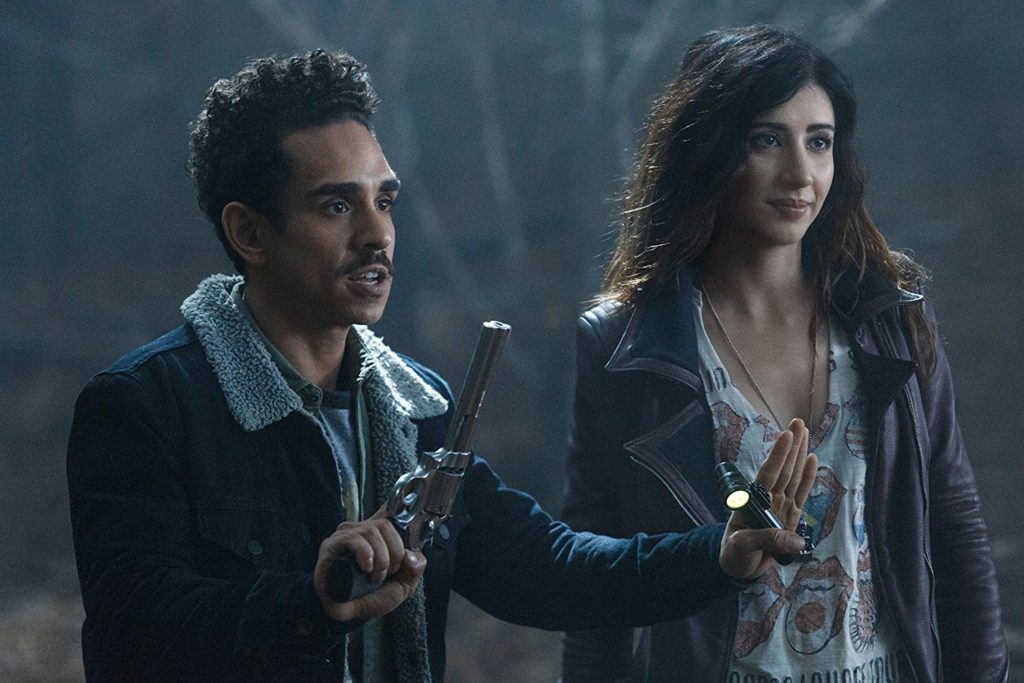
TrunkSpace: The bar has been set high with this job. Any future jobs will always be compared to your time on “Ash vs Evil Dead” now.
DeLorenzo: Oh yeah, I’m screwed. (Laughter) But also, it taught me a lot, and I feel like this was such its own beast, if you will. I feel like not all the characters I play will I be able to find so many ways to bring out these little aspects, so I feel like every character is different. So even if I don’t get to collaborate again, at least I have this. But I do feel like, in my experience, there are many people in this industry who do believe in the good of creating together. If you look at any of the shows that are successful, and beloved, you hear the same thing every time, that everyone gets along, everyone takes part, everyone stays in their own lane, that kind of thing. So I do feel like it is possible. I hope there’s more of that to come.
But yeah, nothing will ever top the moment that Sam Raimi sits you down day one and says, “Hey, I’d really like you to help me rewrite this scene.” And you’re like, “I’m sorry, Sam Raimi, what?” I thought he was kidding. I’ve said this before, he is both the least and most intimidating person in the room, in the sense of, when he talks to you, you’re the only one there, he’s looking at you, he makes you feel so good, he listens to what you have to say, and then he walks away, and you’re like, “Holy shit! That was Sam Raimi!” You’re talking to him, it’s like Sam the butcher from the grocery store and you go, “Hey man, how you doing?” And then he walks away and there’s like this trail of star dust that’s left in view.
TrunkSpace: (Laughter) Well, what’s amazing about Sam is that, where he doesn’t get enough credit is that he really kick-started this whole superhero craze with what he did with the Spider-Man franchise.
DeLorenzo: Absolutely. And also, things like the POV of the object, that was him. He created that whole thing of like, the ax flying from the ax’s point of view. I mean, how genius? So again, I would have been happy to be Screaming Extra #72 in a show like this. (Laughter) Which, by the way, I think that was my biggest credit before getting this show.
So I’m just so grateful to all of them, the producers that took a chance on me, because I’m not the typical horror stereotype. I’m not the beautiful blonde with blue eyes who can scream. I’m a very different-looking, different-sounding character or person that screams like a 75-year-old man. I really thought I was never gonna get this job ’cause I actually can’t scream. I have nodules. My mom, when she saw the first episode, she was like, “That was great but why didn’t they dub your screaming? You sound like you’re a 75 year-old man.” Mom, you’re not wrong. I cannot scream.
TrunkSpace: How great is it that your mom is in on the lingo with dubbing and stuff like that? That’s awesome!
DeLorenzo: (Laughter) Oh, I know. Whenever my parents will call me, immediately after the show airs, this is what I get every time… her impression of a chainsaw. So the show aired. “Hi, Mom and Dad. What’d you think?”
(DeLorenzo does an impression of her mom doing an impression of a chainsaw.)
And it’s actually pretty good. But it’s so funny, ’cause this is not my parent’s cup of tea or anything, but they have grown to absolutely love the show. They give me their full Roger Ebert critique.
New episodes of “Ash vs Evil Dead” air Sundays on Starz. Seasons 1 and 2 are available now on Netflix.


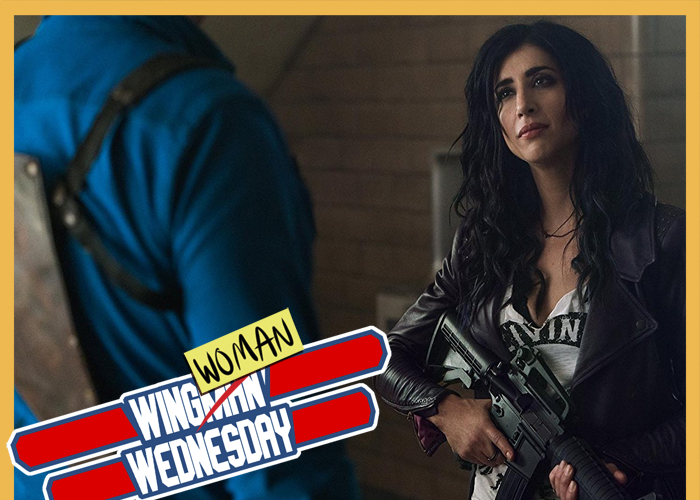
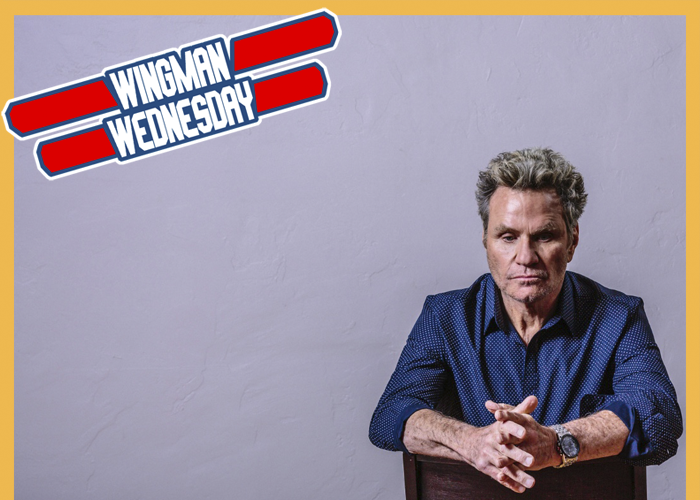
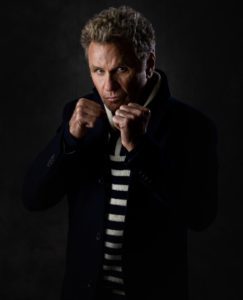
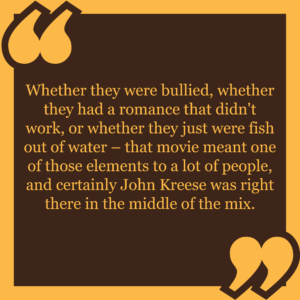
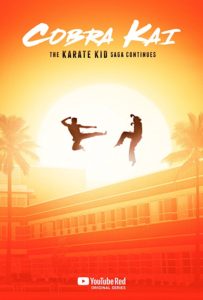 TrunkSpace: You made a great comparison to Darth Vader. There have been plenty of movies in the “Star Wars” franchise now, and plenty of villains, but none of them have lived up to Vader.
TrunkSpace: You made a great comparison to Darth Vader. There have been plenty of movies in the “Star Wars” franchise now, and plenty of villains, but none of them have lived up to Vader.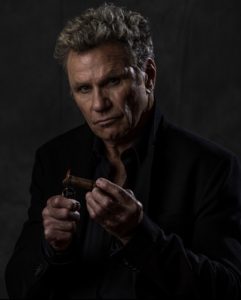
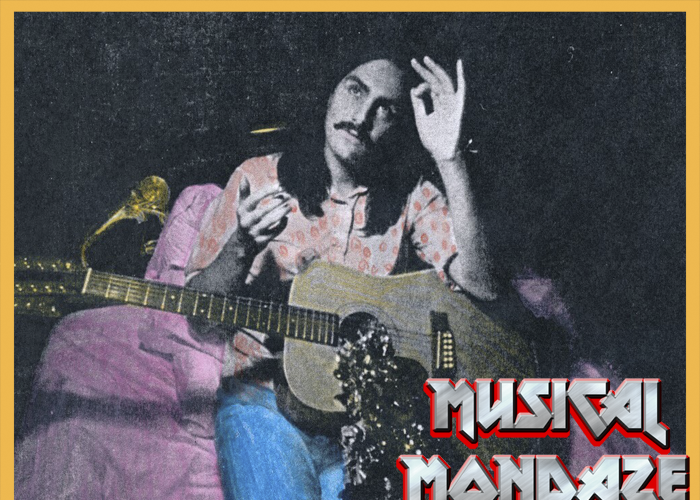
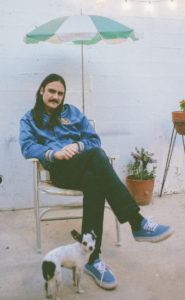
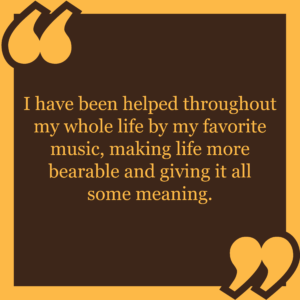
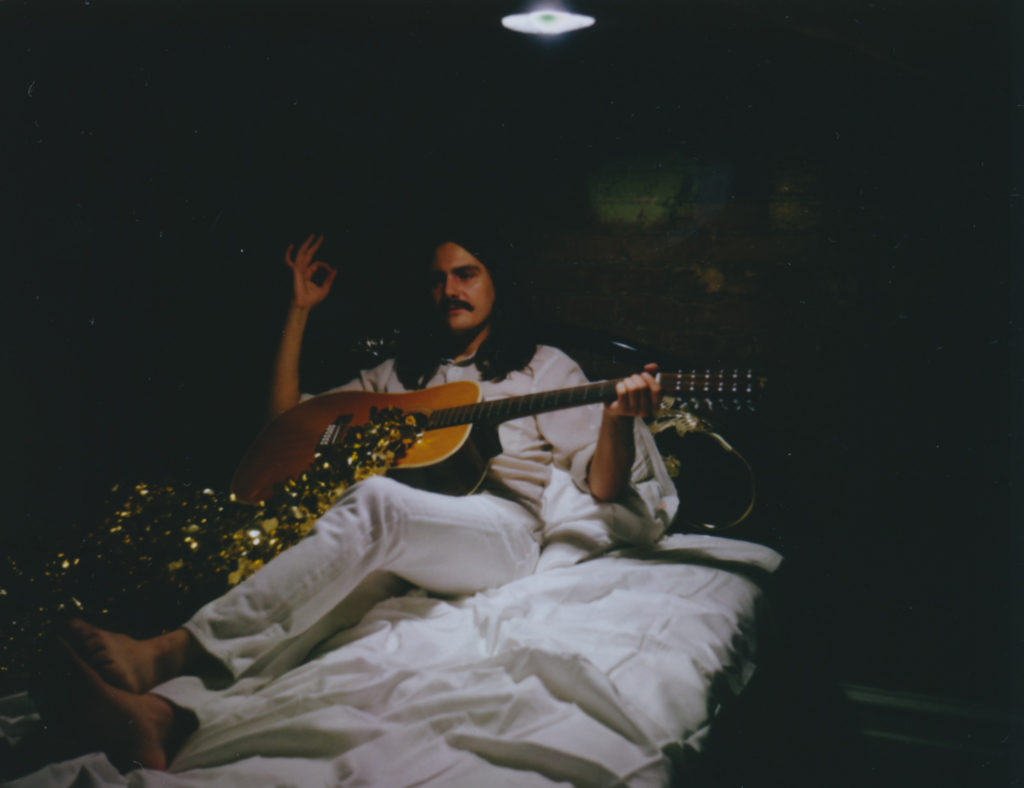

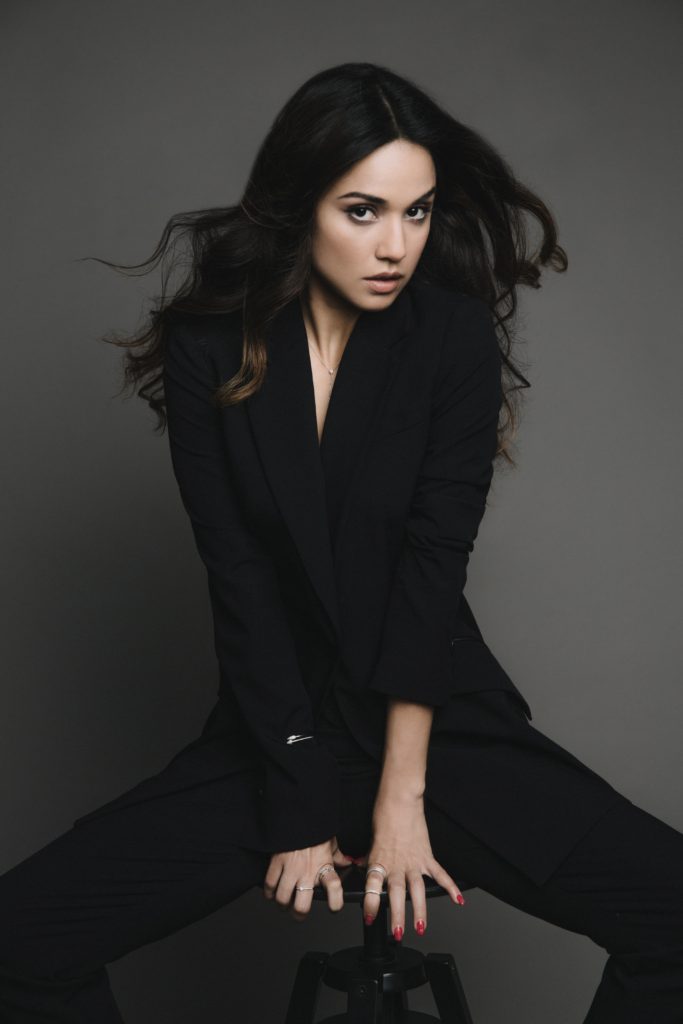
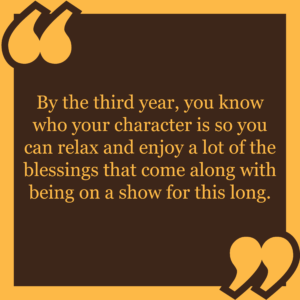


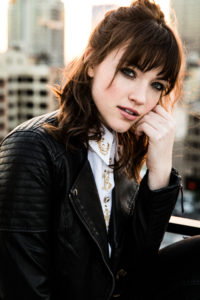

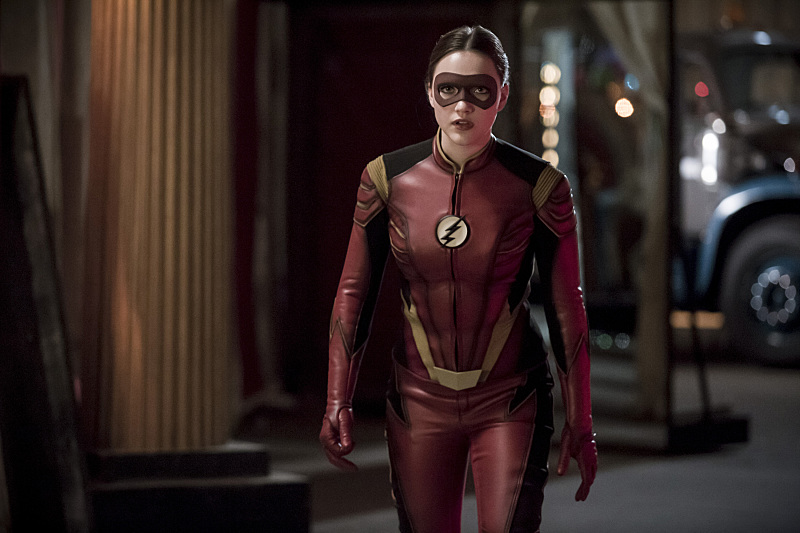
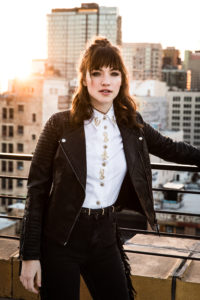
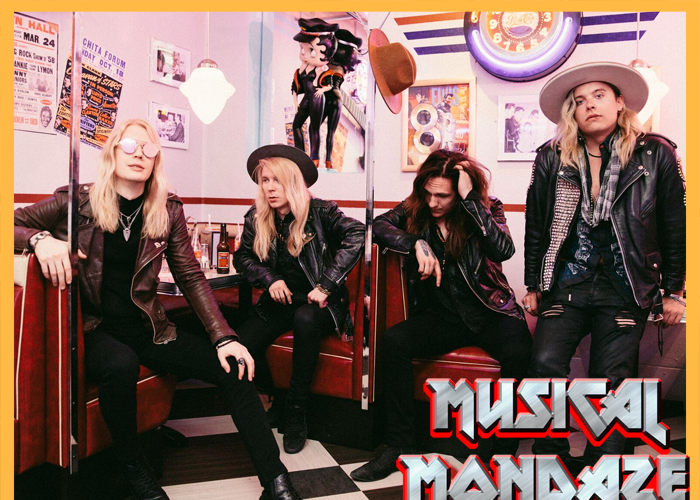
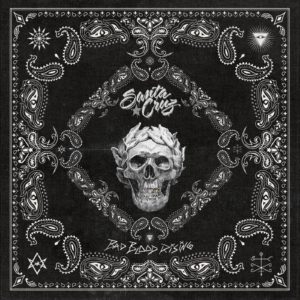
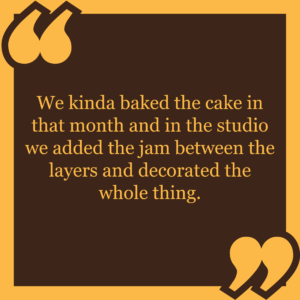 popular there today as it was say, 20 or 30 years ago?
popular there today as it was say, 20 or 30 years ago?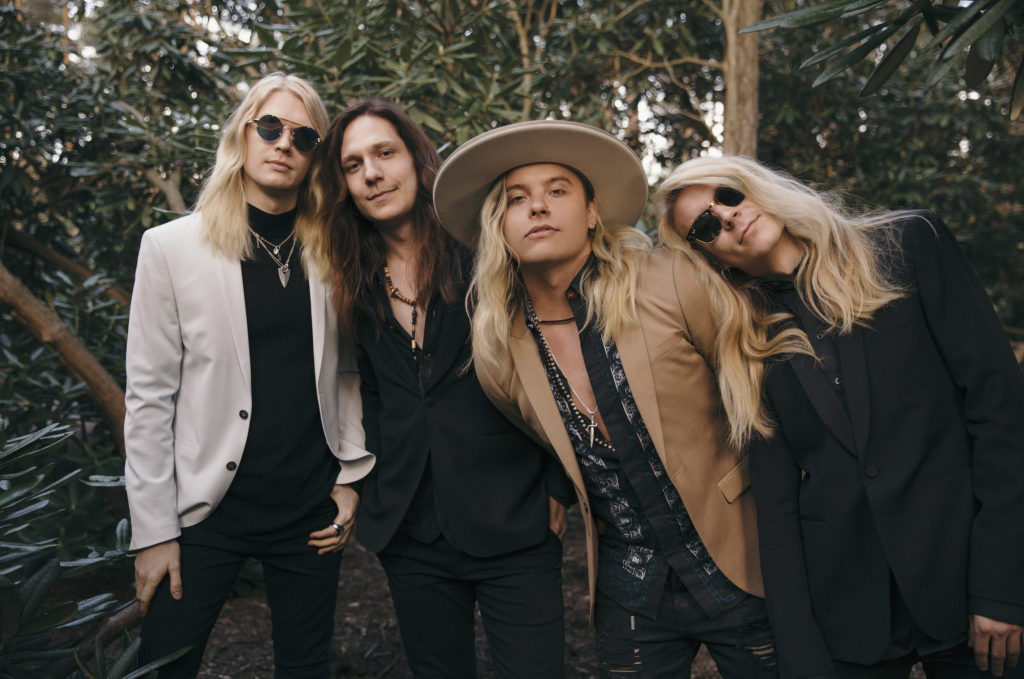
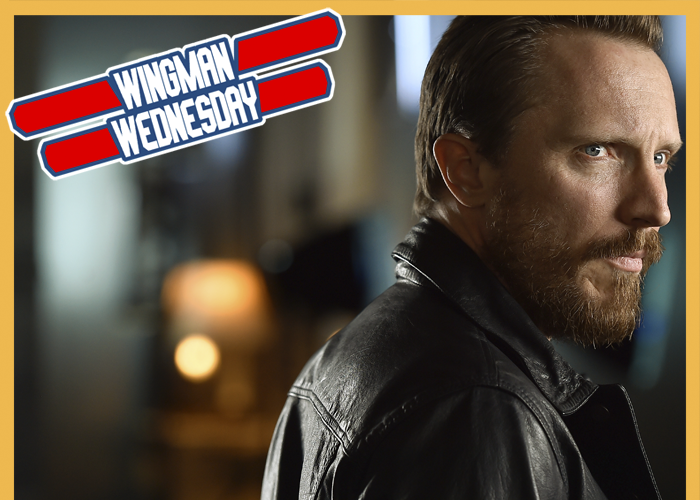
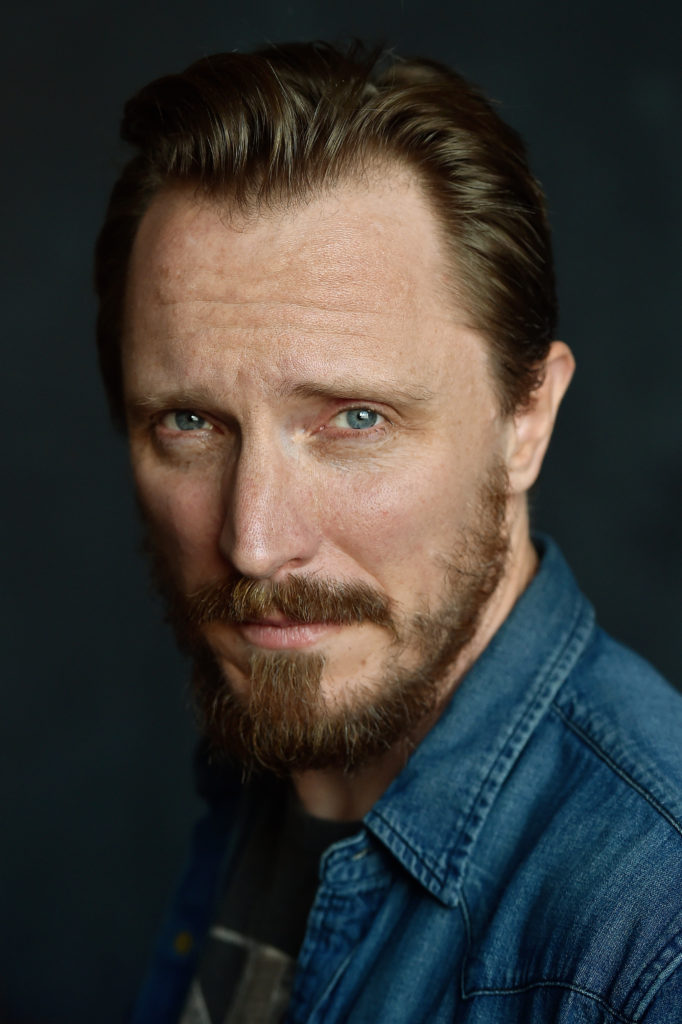
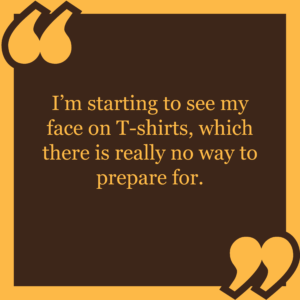 up in that excitement and place your own individual expectations on a project prior to its release? How do you manage that “will it” or “won’t it” when it comes to a series or film finding an audience?
up in that excitement and place your own individual expectations on a project prior to its release? How do you manage that “will it” or “won’t it” when it comes to a series or film finding an audience?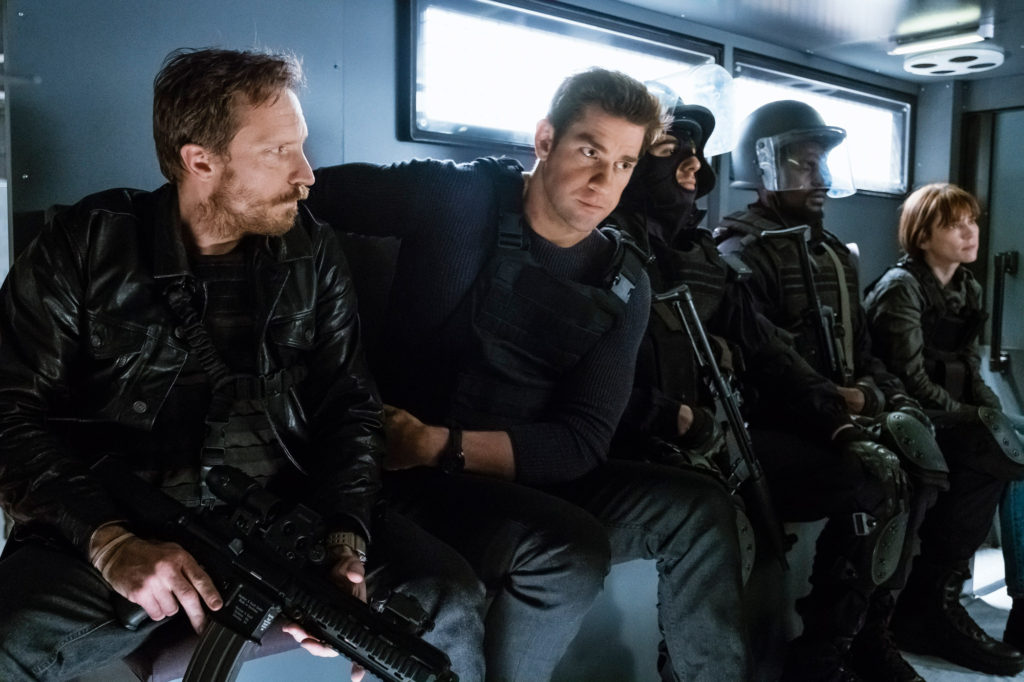
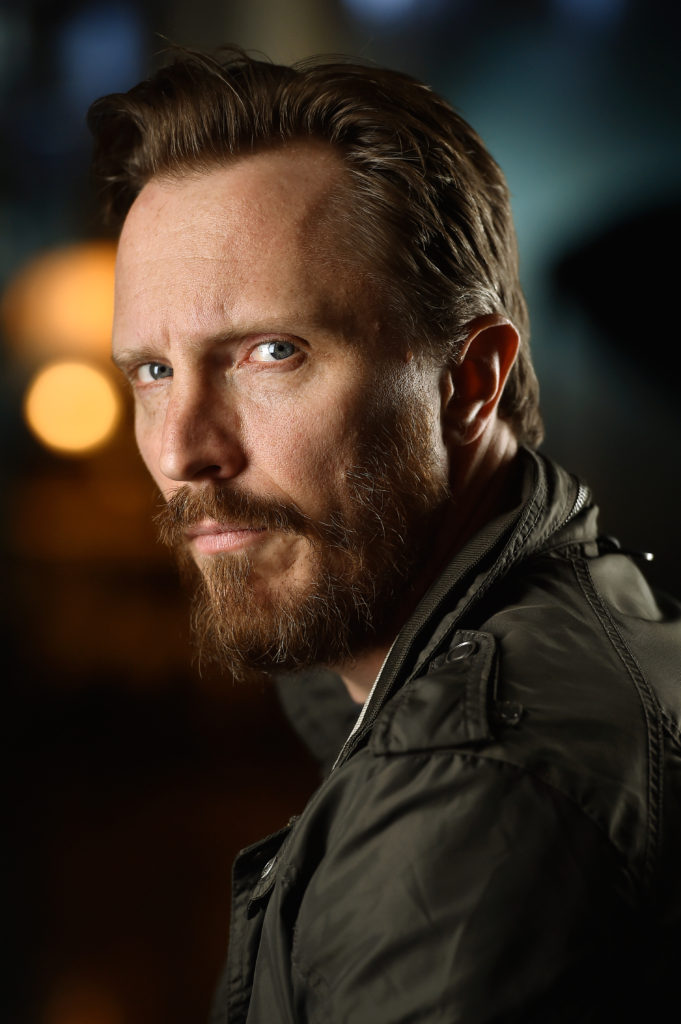
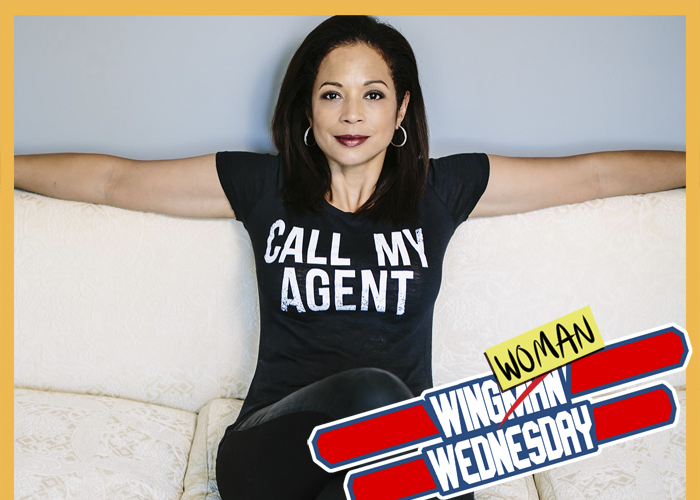

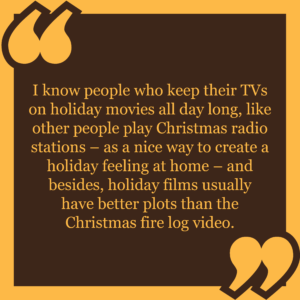 feature film. As such, you have to come prepared and in turn, you will work with others who are similarly prepared. In my case, I enjoy the fast pace, because it forces me to make clear choices quickly and it creates an interesting energy on set. The energy pushes all of us to do good work in a shorter time period. You have to bring your A-game and you have to come to slay!
feature film. As such, you have to come prepared and in turn, you will work with others who are similarly prepared. In my case, I enjoy the fast pace, because it forces me to make clear choices quickly and it creates an interesting energy on set. The energy pushes all of us to do good work in a shorter time period. You have to bring your A-game and you have to come to slay!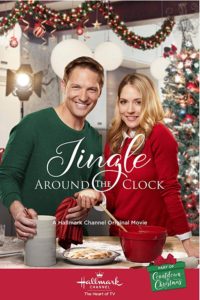 TrunkSpace: You founded Biz Books in 1996. How important has it been for you to maintain active interests in things other than on-screen work, and how do you juggle focus between the various endeavors?
TrunkSpace: You founded Biz Books in 1996. How important has it been for you to maintain active interests in things other than on-screen work, and how do you juggle focus between the various endeavors?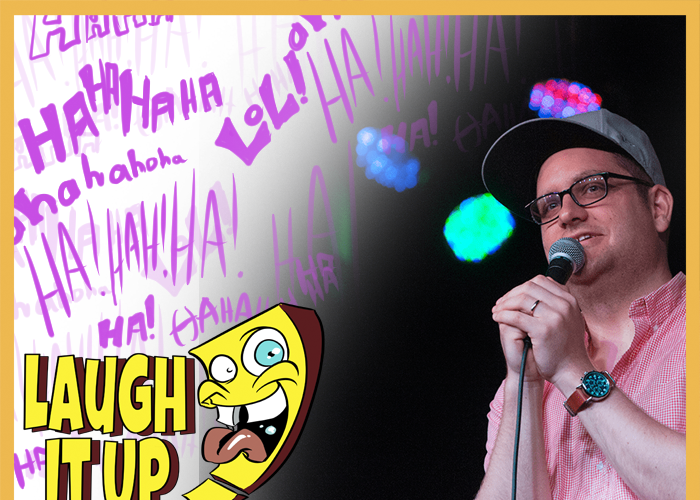
 Name: Alex Falcone
Name: Alex Falcone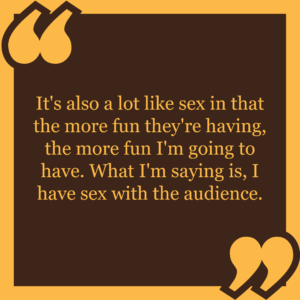 comedian they like. And I was definitely doing that. And now I’m doing an impression of the few times where I’ve really liked my comedy. I talk about somethings that are more important now, because I feel like my joke writing has gotten good enough that I can. When I was first learning, I always wanted to seem harmless. So audiences would give me the benefit of the doubt as I learned the actual skill set. So I cut my teeth telling jokes about dumb stuff like cake, and now I can talk about like, consent, in a way that is just as funny.
comedian they like. And I was definitely doing that. And now I’m doing an impression of the few times where I’ve really liked my comedy. I talk about somethings that are more important now, because I feel like my joke writing has gotten good enough that I can. When I was first learning, I always wanted to seem harmless. So audiences would give me the benefit of the doubt as I learned the actual skill set. So I cut my teeth telling jokes about dumb stuff like cake, and now I can talk about like, consent, in a way that is just as funny.
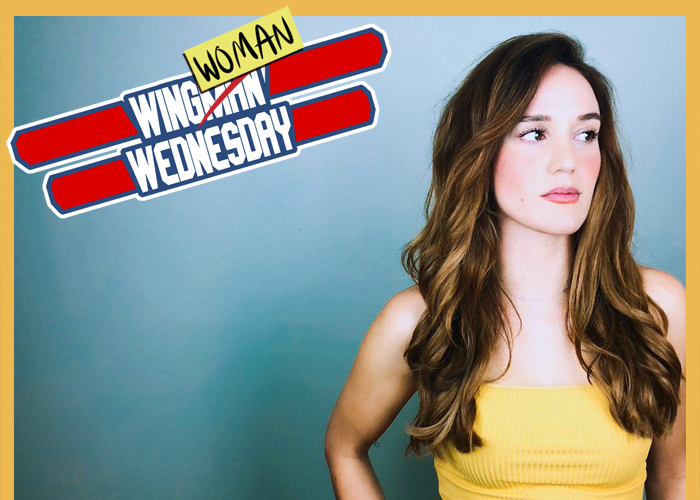
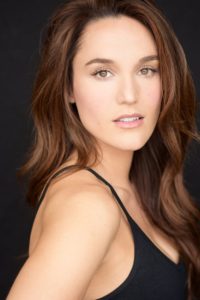
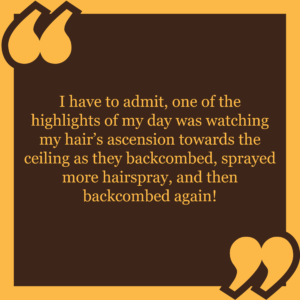 expressing yourself or expressing your character, which in many ways, is expressing parts of yourself as well. I’ve heard so many reasons you can’t do both and for a while, I wasn’t allowed to act while I was signed as a teen. But in this day and age, I think art is art and I’m just grateful to be swimming in that pond of creativity!
expressing yourself or expressing your character, which in many ways, is expressing parts of yourself as well. I’ve heard so many reasons you can’t do both and for a while, I wasn’t allowed to act while I was signed as a teen. But in this day and age, I think art is art and I’m just grateful to be swimming in that pond of creativity!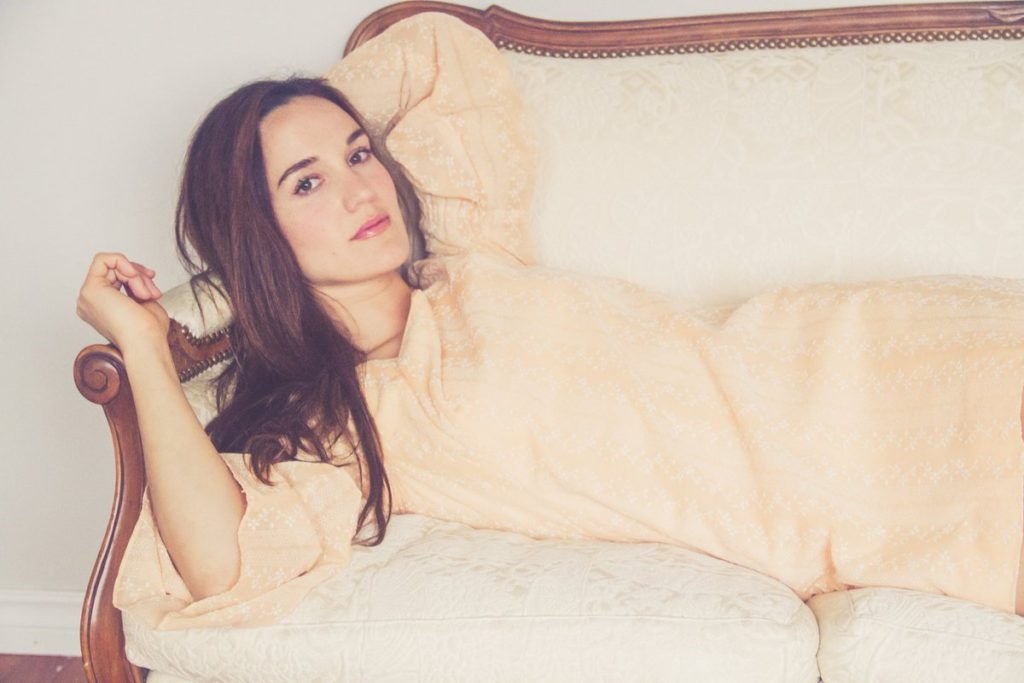
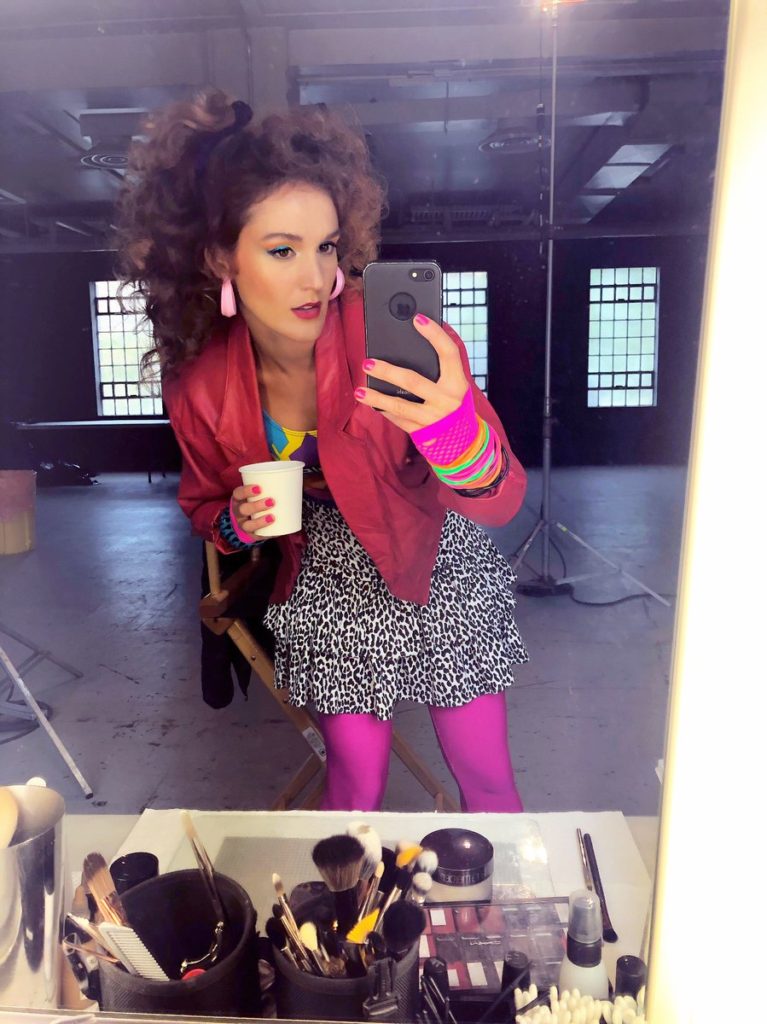 TrunkSpace
TrunkSpace